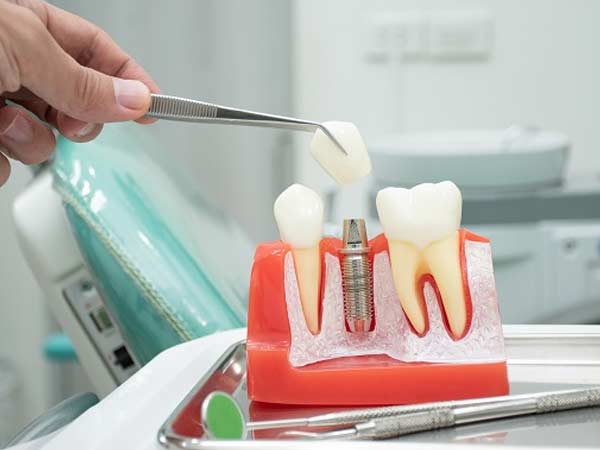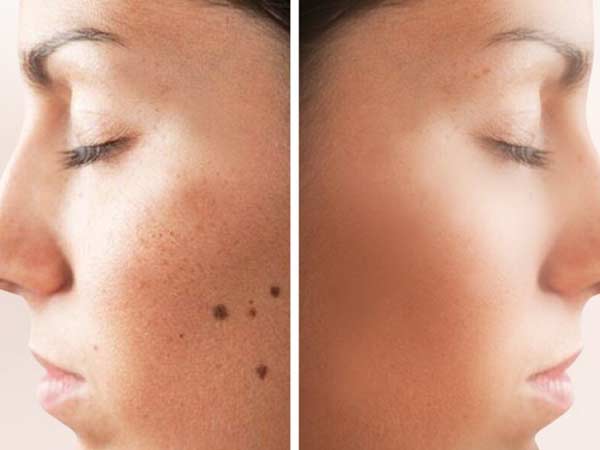Dental Implants – The tooth replacement solution If you have missing teeth and want a solution that is close to your natural teeth, dental implants are the best option for you in the modern day scenario. It is now recognized by the American Dental Association as a standard treatment for a wide range of problems.
Implants have been used for more than a quarter of a century. It is an ancient art which has been refined and now the use of dental implants is becoming a routine. The procedure itself is quite easy and predictable.
Many patients choose implants to replace a single tooth, several teeth or to support a full set of dentures. What are implants? They are manufactured posts made of titanium and other materials placed directly into the jaw bone, which is designed to create a stable foundation.
There are 2 parts to a dental implant, which stimulates the strength of the tooth root. The main part of the dental implant is embedded in the jaw bone for an effect, which is much stronger than dentures. The second part of the dental implant is the post that protrudes above the jaw bones and gum lines to provide a fixed point to attach the tooth restoration that will simulate the crown.
Why replace missing teeth? A gap between your teeth, if obvious becomes a cosmetic concern when you smile or speak Missing teeth may affect your speech.
When a tooth is removed, the biting force on the remaining teeth begins to change. As the bite changes to compensate for the lost tooth, there is a risk of extra pressure and discomfort on the jaw joints, which may lead to Tempromandular Disorder also known as (TMD)
If a missing tooth is not replaced the surrounding teeth can shift. Harmful plaque and tartar can collect in new, hard-to-reach places created by the shifting teeth. Over time this may lead to tooth decay and periodontal diseases
Bone loss can occur in the region of the missing tooth
Benefits of dental implants
It can treat cases untreatable with conventional methods of dental bridges and dentures
Crown and bridge require two or more healthy teeth be ground down to serve as abutments (posts) for a bridge, it avoids cutting down and overloading the natural teeth with conventional means It gives superior aesthetic results It prevents further resorption of the jaw bone following tooth loss, as dental implants like natural teeth also transmit chewing forces to the jaw bone which reduces bone loss and prevent premature aging Most importantly it helps restore a patient’s self-esteem and confidence, since it gives the feeling of regaining their original teeth Indications of dental implants Single tooth implant:- It is a free standing unit and does not involve treatment to adjacent teeth, thereby maintaining their strength and integrity.
Implant supported bridges and dentures.
Dental implants may be used to support a bridge when several teeth are missing. An implant supported bridge does not require support from adjacent teeth. If you are missing all of your teeth, an implant-supported denture can replace the missing teeth and some of the tooth roots. Since the dental implants integrate with the jaw bone, an implant-supported denture tends to be more stable, as there is no problem of slippage and discomfort.
What are the procedures involved?
The surgery can commence after thorough diagnosis and treatment planning. A recipient site of the same shape and size as the implant is created in the jaw bone with drilling instruments. The implant is inserted into the site prepared.









